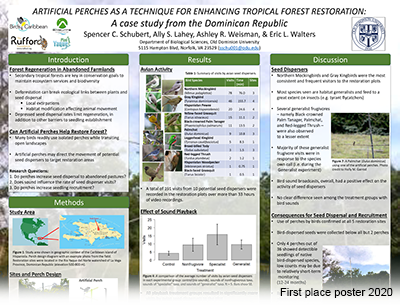College
Darden College of Education and Professional Studies
Program
M.S.Ed. Special Education
Publication Date
Spring 2020
DOI
10.25883/6mbd-zy46
Abstract
This investigation experimentally evaluated the effects of eCoaching with Bug-in-Ear (BIE) technology on the use of contingent specific praise in three paraeducators working in a special education transition classroom. A trained special education teacher provided performance-based feedback in real-time as paraeducators worked one-on-one with transition-age students with autism spectrum disorder (ASD) and comorbid intellectual disability (ID). As such, we used a multiple baseline research design to evaluate the effects of the independent variable (i.e., eCoaching). Results indicated that eCoaching using BIE technology increased the use of contingent specific praise given by paraeducators as they worked one-on-one with students. Increased rates of specific praise were observed during the fading condition, and all three paraeducators sustained high rates of specific praise. Our study demonstrates the efficacy of providing performance-based feedback by means of eCoaching with BIE technology, and recommendations for research and practical application are offered.
Keywords
eCoaching, Bug-in-ear (BIE) technology, Paraeducators, Autism spectrum disorder (ASD), Students
Disciplines
Educational Technology | Special Education and Teaching
Files
Download Full Text (344 KB)
Recommended Citation
Karadimou, Olga; Lotts, Sierra; and Horn, Annmarie, "Effects of Bug-in-Ear Technology on Specific Praise Statements Given by Paraeducators to Transition-Age Students with Autism" (2020). College of Education & Professional Studies (Darden) Posters. 2.
https://digitalcommons.odu.edu/gradposters2020_education/2



